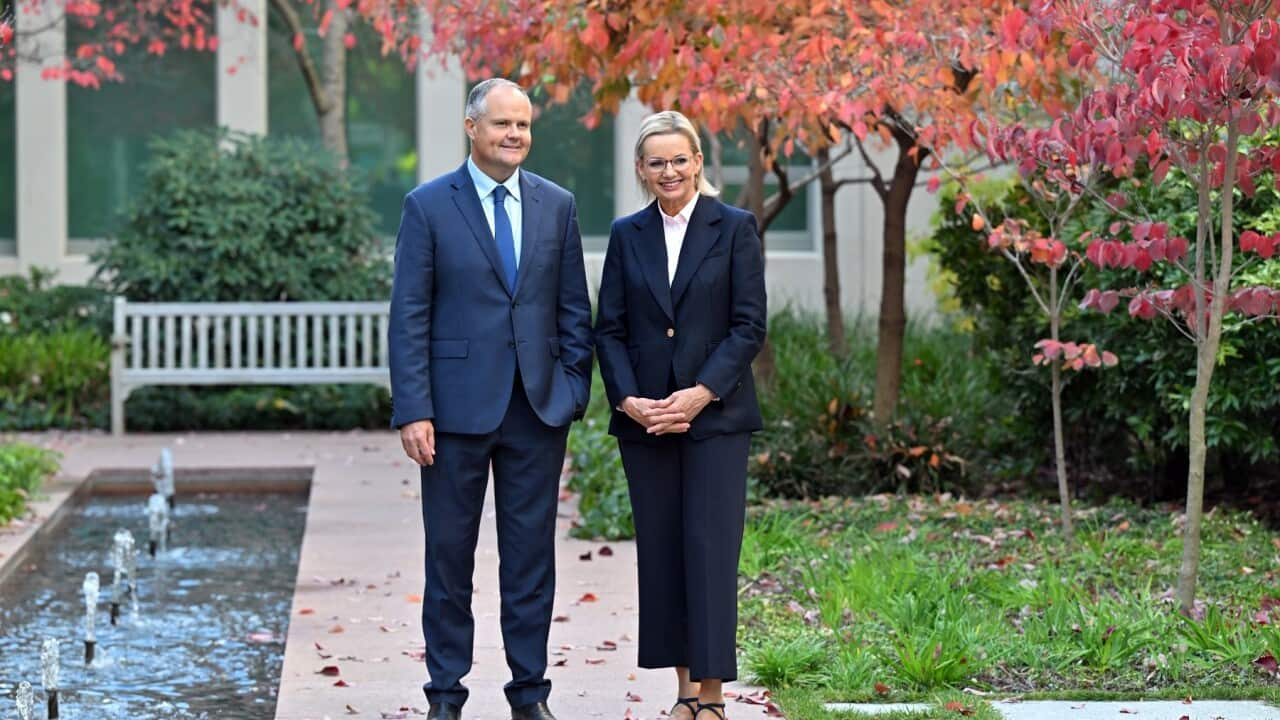TRANSCRIPT
Don't get rom-conned this Valentine's Day.
If it sounds too good to be true, it probably is.
That's a warning by the government and the Australian Federal Police this year.
Just last month, Australian authorities sent a text message to warn more than 5,000 potential victims of a romance scam in the country.
The text alerted potential victims to immediately contact their bank if they have sent funds.
Those who received the text message were mostly men over the age of 35.
Graeme Marshall is a commander with the AFP.
"The AFP is flipping the script on romance scammers on their real-life dialogue used to target the bank accounts and hearts of thousands of potential victims online. We want to make sure everyone using dating apps has the tools and information to be safe online and to swipe left on romance scammers."
It comes after an investigation last year involving the AFP and international law enforcement partners.
Operation Firestorm was set up to disrupt offshore organised crime syndicates that deceive Australians through romance, investment or cryptocurrency scams.
More than 250 suspected cyber criminals were arrested in Philippines' capital Manila at the time.
What they found there was thousands of devices and SIM cards linked with messages from Australian-based phone numbers.
It's been alleged the scammers used popular dating apps to trick victims into fake online romantic relationships in less than a week.
Today, the AFP, Australia's National Anti-Scam Centre, Philippines Presidential Anti-Organized Crime Commission and National Bureau of Investigation in the Philippines released the script used by these scammers on dating apps.
The script that was uncovered during the operation last year reveals the sweet-talking tactics of these scammers before their victims are asked to transfer money or cryptocurrency.
According to the Australian Competition and Consumer Commission, Australians lost $23-point-six [[$23.6]] million dollars to dating and romance scams last year.
Deputy Chair of the ACCC, Catriona Lowe says romance scammers typically preyed on people seeking companionship and connection.
Commander Marshall says this can impact the victims in multiple ways.
"Scammers will use emotive language and create back stories that sound genuine to try to trick you into giving money. Being deceived by someone online can have long lasting financial and emotional effects."
AFP Assistant Commissioner David McLean is urging the public to be aware of the tactics used by scammers in what are called boiler room operations - where high-pressure sales tactics are used to induce victims to part with their money.
"A large portion of cyber crime affecting Australians originates offshore. And this action shows how the AFP and its international partners are proactively taking the fight to the syndicates where they operate. We commend the Philippines Presidential Anti-Organized Crime Commission and NBI (National Bureau of Investigation) for their work in identifying this boiler room and taking the action as swiftly as they did to shut it down."
As part of the fraud, the scammer would portray a kind-hearted Filipino woman living in Australia or a local female resident in the Philippines, heartbroken by an ex-fiancé who wanted her money and not her love.
They would subtly introduce cryptocurrency trading into the conversation as their side job, before framing it as a successful financial venture that helped them achieve significant wealth.
The scammer would offer to teach the victim how to make a cryptocurrency investment of between A$300-$800 dollars.
The fraudster would then ask the victim to transfer their funds from the legitimate cryptocurrency exchange platform to the scammer's online crypto account.
It doesn't stop there. They will continue to push the victim to make more investments of higher amounts.
Authorities were able to identify more than 5,000 potential Australian victims targeted by this malicious scam.
Assistant Commissioner McLean thanked them for their help.
"I'd also like to thank them for the trust they have shown to the AFP by allowing us to work with gathered intelligence on the structure of these types of scams call centres, how they are targeting Australians; and the ways to help identify victims."
He says they were provided with intel into the structures operating within the hubs.
"Importantly, an AFP cryptocurrency expert was given a unique insight into the financial and money laundering structures operating within the hubs. And that would be immensely helpful and developing our strategies and combating this particular crime type and lessening or mitigating its impact on Australians."
The commander cyber crime operations at the AFP, Graeme Marshall, says there are steps people can take to protect themselves.
"If something feels off take a step back and seek advice from a family member, friend or work colleague. If you have already sent someone money or cryptocurrency, please report it to your bank or digital currency exchange immediately and then report to police fire reports cyber."
Scams can be reported to ScamWatch or the police. If you, or someone you know needs support, Lifeline can be contacted on 13 11 14 - or Beyond Blue on 1300 224 636.













